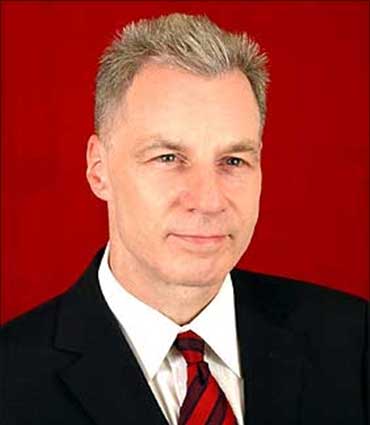
US-India Business Council is busy organising a business summit with the Indian chambers of commerce in Mumbai and Delhi during the coming visit of US President Barack Obama.
In an interview with Business Standard, USIBC president Ron Somers explains the significance of the the US-India partnership. Edited excerpts:
What is the purpose of the proposed visit?
Achieving a genuine, strategic partnership with India is the over-arching objective.
Distinguishing India as the world's largest free-market democracy, as a trusted friend and partner to spur job creation and opportunity for both societies, as a nation that will step forward to help solve some of the major global challenges of the 21st Century -- these are the themes that can be mobilised to action.
US companies that never before considered India will be boarding flights to New Delhi, Mumbai, Pune, Chennai, Bengaluru and Hyderabad. Collaborations and joint ventures will abound.
The US-India opportunity will be the buzzword of the second decade of the 21st Century.
. . .
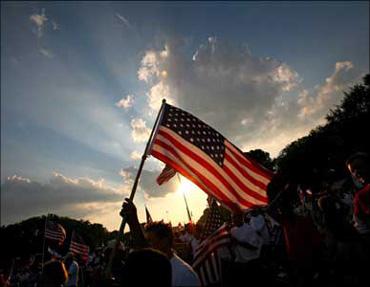
Annual trade between the US and India is surpassing $50 billion. What's the potential for increasing it?
Removing the barriers that will open a fire hose of high technology trade between our countries is bound to spin off collaborations in almost every sector.
When you consider exploring space as partners, just imagine the benefits this will reap for last-mile connectivity, e-health, e-learning, forecasting the weather, monitoring crop distribution and rainfall from the monsoon, tracking the retreat of the Himalyan glaciers, climate change, etc.
The benefits will be enormous.
Such high-technology cooperation will enable us to address global challenges as partners -- and to take on these challenges and find solutions, to affect positive outcomes for all humanity.
The possibilities are truly limitless.
. . .
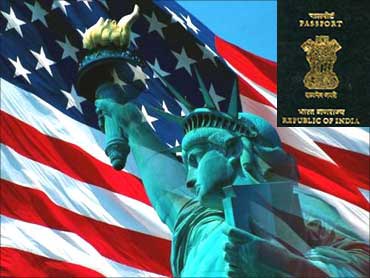
Immigration continues to be an issue of difference. Do you expect the US administration to amend its policies?
Certainly, the business community and organisations like the US-India Business Council are champions of global trade.
We must remain ever-vigilant not to retreat to the easy political rhetoric of protectionism.
President Obama's visit to India and his experiencing first-hand the bounty of talent that is so evident will positively affect him, will move him.
This can only help him articulate leadership, supporting greater engagement with India -- which includes the movement back and forth of high technology, qualified professionals.
. . .
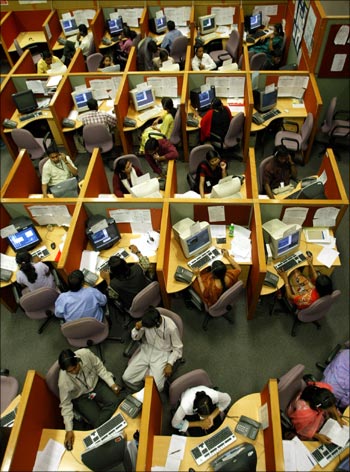
Besides, the recent decision to increase visa fees has not gone down well in Indian industry. How could this be resolved?
What we need to focus on is to stem any further deterioration in this direction, to stop any back-sliding that tends toward protectionism.
When the new US Congress forms, we must become more effective on Capitol Hill, conveying the business message about how global value addition is essential for our companies to remain competitive on the world stage.
This message can gain traction, but we must deliver it more effectively.
. . .
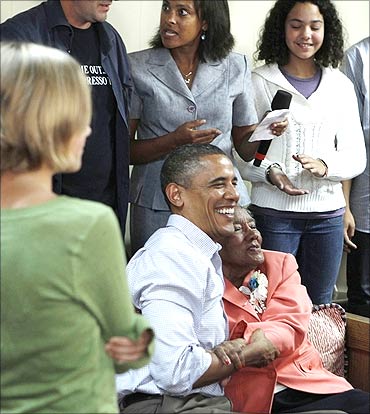
What the are key areas in which both countries can contribute each other to increase the flow of trade and investments?
I am a big believer that increased defence trade will spawn technology spinoffs that will benefit virtually every sector of both economies.
I use the example of the American effort to land a man on the moon in the 1960s. Who could have imagined then that the invention of the computer and so many other high technology items would be the result?
The same will be true when our countries begin engaging in true strategic cooperation -- sharing high technology defense and security equipment.
Whole new areas of innovation will be the result.
So, as India upgrades its armed forces' capability, I sincerely hope they will favorably be inclined to buy American.
This sharing of technology will bleed into all other sectors, catapulting the relationship, spurring innovation.
. . .
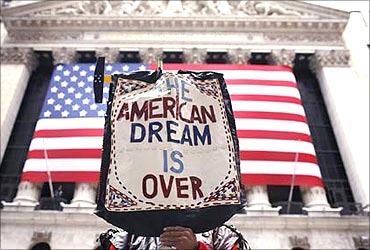
What are the major business agreements to be signed during the visit?
USIBC's wish list is one that benefits both sides: a 'full-steam ahead' demonstration that both sides earnestly wish to implement the hard-fought US-India civil nuclear initiative, that India's partner status as a nation is raised to a level that distinguishes the US-India partnership, where trust and mutual respect are the watchwords, that American companies are invited to engage completely in India's infrastructure build-out, which presents an historic opportunity for companies from both countries, that our governments begin looking to the next horizon and join efforts to take on challenges of common concern beyond both our borders.
These are hints from USIBC's wish-list. Let's see what deals are executed to exemplify these worthy objectives.